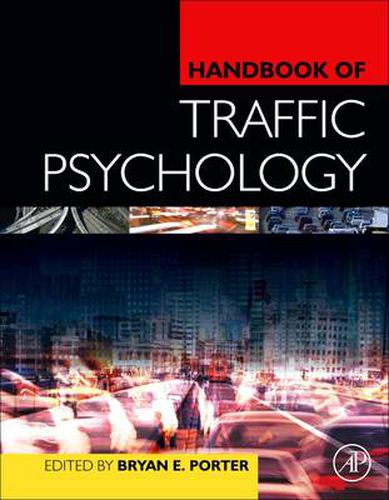Readings Newsletter
Become a Readings Member to make your shopping experience even easier.
Sign in or sign up for free!
You’re not far away from qualifying for FREE standard shipping within Australia
You’ve qualified for FREE standard shipping within Australia
The cart is loading…






The Handbook of Traffic Psychology covers all key areas of research in this field including theory, applications, methodology and analyses, variables that affect traffic, driver problem behaviors, and countermeasures to reduce risk on roadways. Comprehensive in scope, the methodology section includes case-control studies, self-report instruments and methods, field methods and naturalistic observational techniques, instrumented vehicles and in-car recording techniques, modeling and simulation methods, in vivo methods, clinical assessment, and crash datasets and analyses. Experienced researchers will better understand what methods are most useful for what kinds of studies and students can better understand the myriad of techniques used in this discipline. * Focuses specifically on traffic, as opposed to transport* Covers all key areas of research in traffic psychology including theory, applications, methodology and analyses, variables that affect traffic, driver problem behaviors, and countermeasures to reduce the risk of variables and behavior* Contents include how to conduct traffic research and how to analyze data* Contributors come from more than 10 countries, including US, UK, Japan, Netherlands, Ireland, Switzerland, Mexico, Australia, Canada, Turkey, France, Finland, Norway, Israel, and South Africa
$9.00 standard shipping within Australia
FREE standard shipping within Australia for orders over $100.00
Express & International shipping calculated at checkout
The Handbook of Traffic Psychology covers all key areas of research in this field including theory, applications, methodology and analyses, variables that affect traffic, driver problem behaviors, and countermeasures to reduce risk on roadways. Comprehensive in scope, the methodology section includes case-control studies, self-report instruments and methods, field methods and naturalistic observational techniques, instrumented vehicles and in-car recording techniques, modeling and simulation methods, in vivo methods, clinical assessment, and crash datasets and analyses. Experienced researchers will better understand what methods are most useful for what kinds of studies and students can better understand the myriad of techniques used in this discipline. * Focuses specifically on traffic, as opposed to transport* Covers all key areas of research in traffic psychology including theory, applications, methodology and analyses, variables that affect traffic, driver problem behaviors, and countermeasures to reduce the risk of variables and behavior* Contents include how to conduct traffic research and how to analyze data* Contributors come from more than 10 countries, including US, UK, Japan, Netherlands, Ireland, Switzerland, Mexico, Australia, Canada, Turkey, France, Finland, Norway, Israel, and South Africa